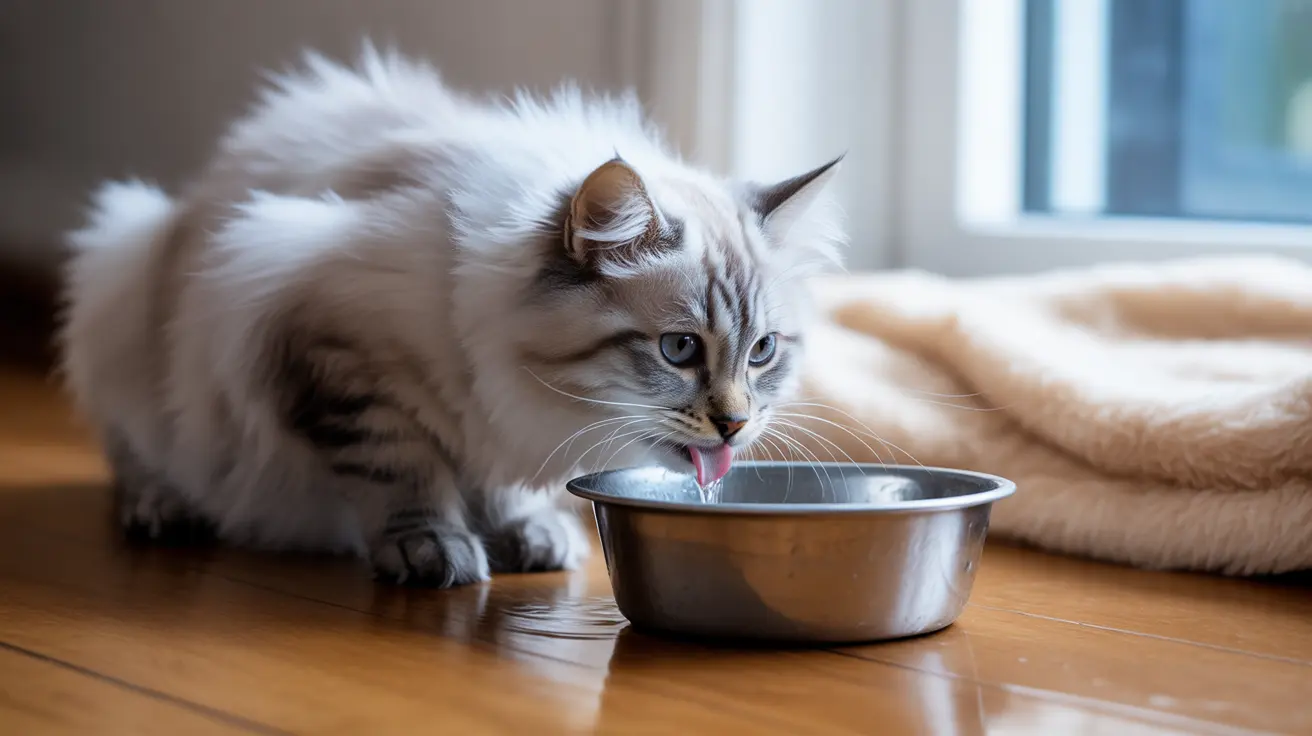Why Fresh Water Matters for Your Cat's Health
Providing clean, fresh water is one of the most fundamental aspects of cat care, yet many pet owners underestimate its importance. Cats are naturally selective about their water sources, and ensuring they have access to clean water is crucial for preventing dehydration and maintaining optimal health.
Fresh water isn't just about hydration – it's essential for preventing urinary tract infections, supporting kidney function, and maintaining overall well-being. Let's explore exactly how often you should change your cat's water and the best practices for keeping their water clean and appealing.
Daily Water Change Guidelines
The golden rule for cat water maintenance is simple: change your cat's water at least once daily, regardless of whether you're using a basic bowl or an advanced water fountain. Fresh, clean water encourages proper hydration and helps prevent potential health issues.
For traditional water bowls, empty, rinse, and refill with fresh water every morning. If you notice any debris, fur, or food particles throughout the day, change the water immediately, even if you've already done the daily change.
Water Fountain Maintenance Schedule
While water fountains help keep water fresher longer through circulation and filtration, they still require regular maintenance:
- Replace water every 2-4 days
- Clean the fountain weekly
- Replace filters every 2-4 weeks
- Monitor water level daily and top off as needed
Multiple Cat Households: Special Considerations
When you have multiple cats sharing water sources, maintenance needs increase significantly. More cats mean more bacteria, saliva, and debris in the water. For households with multiple cats:
- Change water twice daily
- Clean bowls or fountains every 3-4 days
- Replace filters every 1-2 weeks
- Provide multiple water stations throughout your home
Signs It's Time to Change Your Cat's Water
Watch for these indicators that water needs immediate changing:
- Visible debris or floating particles
- Cloudy appearance
- Unusual odor
- Slime or biofilm formation
- Reduced water flow in fountains
- Your cat showing reluctance to drink
Health Risks of Infrequent Water Changes
Neglecting regular water changes can lead to serious health issues:
- Dehydration
- Urinary tract infections
- Kidney problems
- Bacterial infections
- Reduced water intake
- Digestive issues
Best Practices for Water Bowl Maintenance
To ensure your cat always has access to clean, fresh water:
- Use stainless steel, ceramic, or glass bowls (avoid plastic)
- Place water bowls away from litter boxes and food
- Clean bowls with pet-safe soap weekly
- Consider using filtered or spring water in hard water areas
- Monitor water temperature (cats prefer cool water)
Frequently Asked Questions
How often should I change my cat's water in a bowl versus a water fountain?
For bowls, change water daily. For fountains, replace water every 2-4 days, but clean and maintain filters according to the manufacturer's instructions.
What signs indicate it's time to replace the filter in my cat's water fountain?
Replace filters when you notice reduced water flow, visible debris accumulation, unpleasant odors, or discoloration. Generally, this occurs every 2-4 weeks.
How do multiple cats affect how frequently I should change and clean their water?
Multiple cats require more frequent water changes (1-2 times daily) and more thorough cleaning (every 3-4 days) due to increased contamination from saliva, fur, and debris.
What are the health risks if I don't change my cat's water regularly?
Infrequent water changes can lead to dehydration, urinary tract infections, kidney problems, and bacterial infections. Cats may also drink less, compounding these health risks.
How should I clean and maintain my cat's water fountain to keep it safe and fresh?
Clean the fountain weekly with pet-safe soap, replace filters every 2-4 weeks, and change water every 2-4 days. Disassemble and deep clean all parts monthly.
Conclusion
Regular water changes are crucial for your cat's health and well-being. By following these guidelines and maintaining a consistent cleaning schedule, you can ensure your cat always has access to fresh, clean water. Remember, proper hydration is one of the simplest yet most effective ways to prevent common feline health issues and keep your cat healthy and happy.






